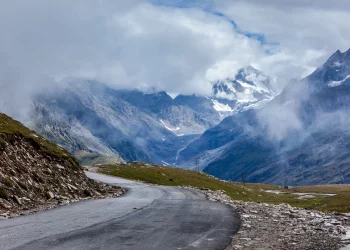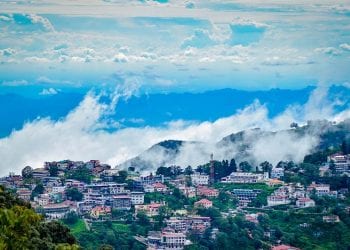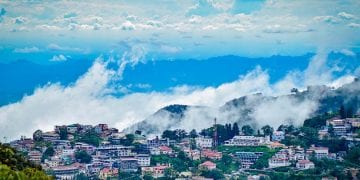Palani Hills Wildlife Sanctuary: An Escape to Serenity
City life gets to you at times with its hustle and bustle, noise, traffic to and fro from the office, making it feels like it’s an absolute hell out there! It is at such moments that you just have to take a break. How about something out of the mundane, someplace calm and tranquil, yet filled with adventure?
We have just the right place for you! Here’s A Guide to Palani Hills Wildlife Sanctuary AKA the perfect escape from the stress of your everyday life. Located in the Dindigul district of Tamil Nadu, it is spread over an area of 736.87 kilometers and was declared a restricted and protected area in 2008. Today, it’s one of India’s most beautiful wildlife sanctuaries. Administered by the Tamil Nadu Forest Department, it’s scenic beauty is truly breathtaking with small hills and even mountains within its area. What’s more, the Palani Hills Wildlife Sanctuary is also home to as many as 26 exotic waterfalls!
Coming to the details, the waterfalls in Palani Hills Wildlife Sanctuary have heights ranging from twenty meters to as high as five kilometers. The most prominent among these waterfalls are Bear Shola Falls and Pambar Falls. Apart from these waterfalls with crystal clear water that glistens in the bright sun, the sanctuary is also blessed with the beauty of mountains reaching up to an average height of eight thousand feet.
As a protected land, the Palani Hills Wildlife Sanctuary is home to some endangered species. If lucky, you could spot a Nilgiri Tahr, one such endangered species. The sanctuary is also home to the Indian Elephant. The weather here is pleasant round the year, which makes the sanctuary an ideal habitat for many reptiles and amphibians too.
Ready to pack your bags already? Read on for further information.
Climatic Conditions
Being in a valley surrounded by mountains, the climate here is slightly cold. Between March and May, the temperature varies between 10 and 20 degrees Celcius. That makes it a rather pleasant place to be in – not biting cold yet not steaming hot either. It is between December and February that temperatures fall to a minimum of 8 degrees Celcius making it pretty chilly. In April and May, the sanctuary sees a lot of rain.
Best Time to Visit
It is in the monsoon, the months of April and May, that one should visit Palani Wildlife Sanctuary. It’s when the place sees regular rainfall but not continuous. During this time, the falls at the sanctuary flow down the hills in all their glory. It’s in the monsoon that you’ll find the Palani Wildlife Sanctuary greet you with lush greenery.
Wildlife at Palani Wildlife Sanctuary

The Palani Wildlife Sanctuary is home to various species of mammals, reptiles, and amphibians too. All of them live off the wide variety of flora and fauna in the sanctuary. We list the prominent ones for you.
Mammals
- Indian Elephant
- Wild Ox
- Wild Boar
- Niligiri Tahr
- Grizzled Giant Squirrel
- Royal Bengal Tiger
Reptiles
- Salea anamallayana
- Ristella Rurkii
- Boiga Dightoni
- Trimeresurus Macrolepis
- Uropeltis Broughami
- Kaestlea Palnica
Amphibians
- Raorchestes dubois
- Micrixalus nigraventris
- Nyctibatrachus deccanensis
- Ghatixalus asterops
The place is well connected by road, rail, and air. The distance of Palani Wildlife Sanctuary from cities close to it and major cities are-
- Coimbatore: 17 km
- Trivandrum: 331 km.
- Bangalore: 465 km
- Chennai: 529 km
- Hyderabad:1030 km
- Mumbai: 1455 km
- Delhi: 1588 km
- Kolkata: 2177 km
Closest Airport
Palani Wildlife Sanctuary is well connected to all major cities by air. The airport closest to it is in Coimbatore, around 170 kilometers away from Kodaikanal, the nearest town. Coimbatore airport is well connected with all major cities.
Closest Railway Station
The nearest station is Kodaikanal. There are numerous buses and taxis available from Kodaikanal that take you right to the sanctuary.
Road Connectivity
Palani Wildlife Sanctuary accessible by road from Chennai, Madurai and Trivandrum. Buses, both air-conditioned and non-air-conditioned, are operated by the government and run from these cities frequently. You can also reach this place by private taxis and buses.
Accommodation
There’s a wide range of accommodation available within the sanctuary itself. Due to the massive size of the sanctuary, the forest guest houses and resorts are located at different spots. It’s wise to book accommodation in advance rather than looking for it after reaching there.
If it’s scenic beauty that charms you, Palani Wildlife Sanctuary has places that will take your breath away. Here are a few of them.
15 Places to visit in Palani Hills Wildlife Sanctuary
- Palani Hills
- Palar Dam
- Saravana Poigai
- Bison Wells
- Kuthiraiyar Dam Falls
- Thekkanthottam
- Varathamanathi Dam
- Alivarmalai
- Ayakudi
- Palani Murugan Temple
- The Dandayuthapani Temple
- Periya Nayaki Amman Temple
- Kannadi Perumal Temple
- Laxmi Narayana Perumal Temple
- Tiru Avinankudi Temple
1. Palani Hills
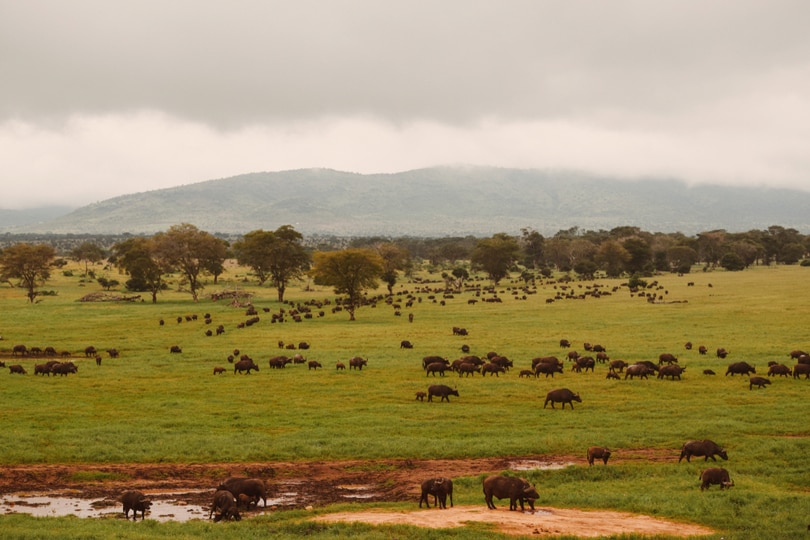
Situated in the Western Ghats, it is home to some of the rarest species of birds, plants, butterflies, and amphibians. Two streams, Vaigai and Amravathi, flow through these hills and are mesmerizingly beautiful. On the lower slopes of the hills, you’ll find coffee gardens.
2. Palar Dam
Around 10 kilometers away from Palani, this dam spreads over the Palar and the Porundalar rivers. More than 17,000 hectares of land is irrigated with water from this dam. It is 20 meters in height and 2450 meters in length.
3. Saravana Poigai
A pool in the Himalayas, it is believed that the divine child, Saravana Poigai Murugan emerged from it. Another pool, Tiru Avinakudi situated nearby is believed to have supernatural powers that can cure several diseases.
4. Bison Wells
As the name suggests, this is a wildlife area with a large population of Indian bison. Apart from bison, you’ll also see elephants, deer, monkeys and various species of rare birds. If you’re fortunate, you might spot a tiger too! The place is so named as it has a large number of bison coming to the wells to drink water.
5. Kuthiraiyar Dam Falls
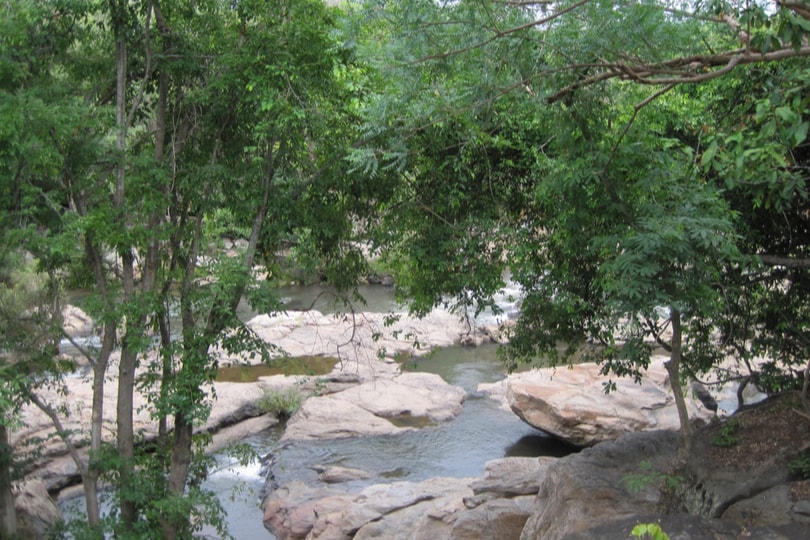
Situated close to Pappampatti in Palani, the place can be easily reached with the guidance of local villagers. You can reach it after a trek of one kilometer from Mumbai. It’s worth the effort as the falls behind the dam are of enchantingly beautiful.
6. Thekkanthottam
You can reach this place from the small village of Thekkanthottam. The water from this waterfall is transported to Palani using a pipeline and thereafter stored in waters tanks within Palani Hills. Also called the Water Dam, this is the primary source of filtered water for Palani.
7. Varathamanathi Dam
A beautiful picnic spot, this place is located at a distance of about 7 kilometers from Palani. It’s on the way to Thekkanthottam and offers various activities for children. This place can also be reached easily by bus from Kodaikanal.
8. Alivarmalai
At the height of 1,400 feet above sea level, Alivarmalai means the hill of five. The Pandavas, it is believed, rested here during their exile. There are shrines devoted to Draupadi, Palani Andavar and Vinayaka on top of the hill.
9. Ayakudi
Situated in the Dindigul district of Tamil Nadu, Ayakudi is a panchayat town. It’s famous for the cultivation of guava which is also sold in local markets. The other crops cultivated here are sugarcane, paddy, cotton, lime and mangoes. These are also exported to other countries. If it’s calm and quiet you’re looking for; this is the place to be.
There’s never a dull moment at Palani. But, here are some nearby places you can visit from Palani.
10. Palani Murugan Temple
One of the most prominent abodes of Lord Murugan, it is considered to be the third in six such abodes of the deity. Known as ‘Navabhasana’, the god is made of nine minerals. Those with back problems and breathing problems should avoid the place. A reasonable level of fitness is desirable for a visit to this temple
11. The Dandayuthapani Temple
Here, Lord Murugan is worshipped as Kaumaram. With a gold gopuram in the sanctum sanctorum, the architecture of the temple has a strong influence of the Pandyas.
12. Periya Nayaki Amman Temple
Devoted to goddess Periya Nayaki Amman, also known as Parvathi Mata, the temple is a magnificent example of South Indian architecture. The main deity of the temple is Parvathi Mata, the mother of Lord Murugan.
13. Kannadi Perumal Temple
Located 9 kilometres south of Palani and perched on a hillock, this temple is devoted to Lord Vishnu. The temple is believed to protect one from ‘Drishti’ which means casting an ‘evil eye.’
14. Laxmi Narayana Perumal Temple
Facing the east, the temple has a balipeetam and a flagstaff. It’s open every day from 7∶30 AM to 8∶00 PM. The entry here happens to be free, and no pets are allowed.
15. Tiru Avinankudi Temple
Located in the foothills of the Palani Hills, this is among the older temples in this region. This temple is also called the Kulanthai Velayuthaswamy Temple, and the Lord is depicted as a child here.
Shanmuga Nadi Group of Temples- This temple is located at a distance of four kilometers from the Shanmuga Nadi village near the town of Palani. The Periya Avudayar Kovil on the banks of the Shanmuga Nadi river is also a famous temple in this region.
Recent Posts
Top Picks

- OYO
 15 April, 2024
15 April, 2024 - Cultural Tour

- OYO
 15 April, 2024
15 April, 2024 - Cultural Tour

- OYO
 15 April, 2024
15 April, 2024 - Cultural Tour

- OYO
 15 April, 2024
15 April, 2024 - Cultural Tour

- OYO
 15 April, 2024
15 April, 2024 - Cultural Tour

Please rotate your device
Please go back to portrait mode for the best experience



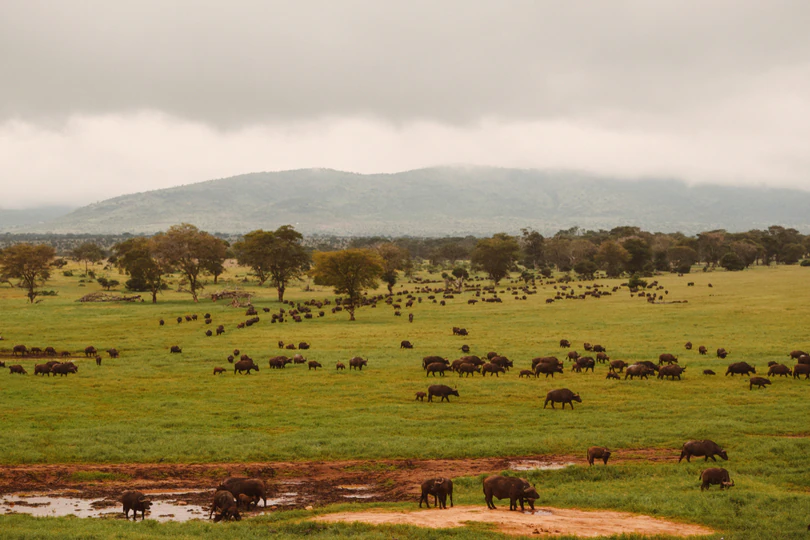

 April 15, 2024
April 15, 2024 